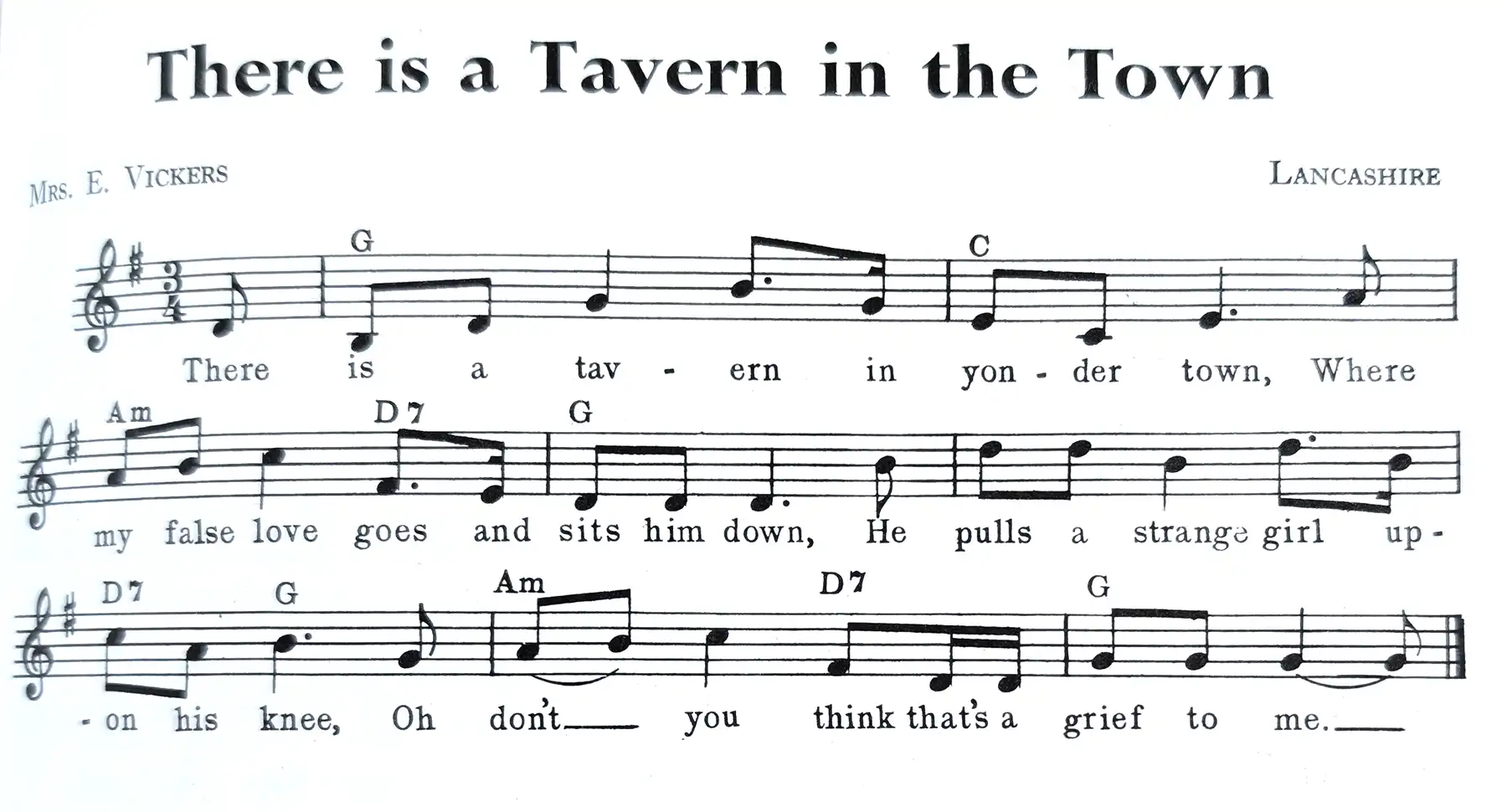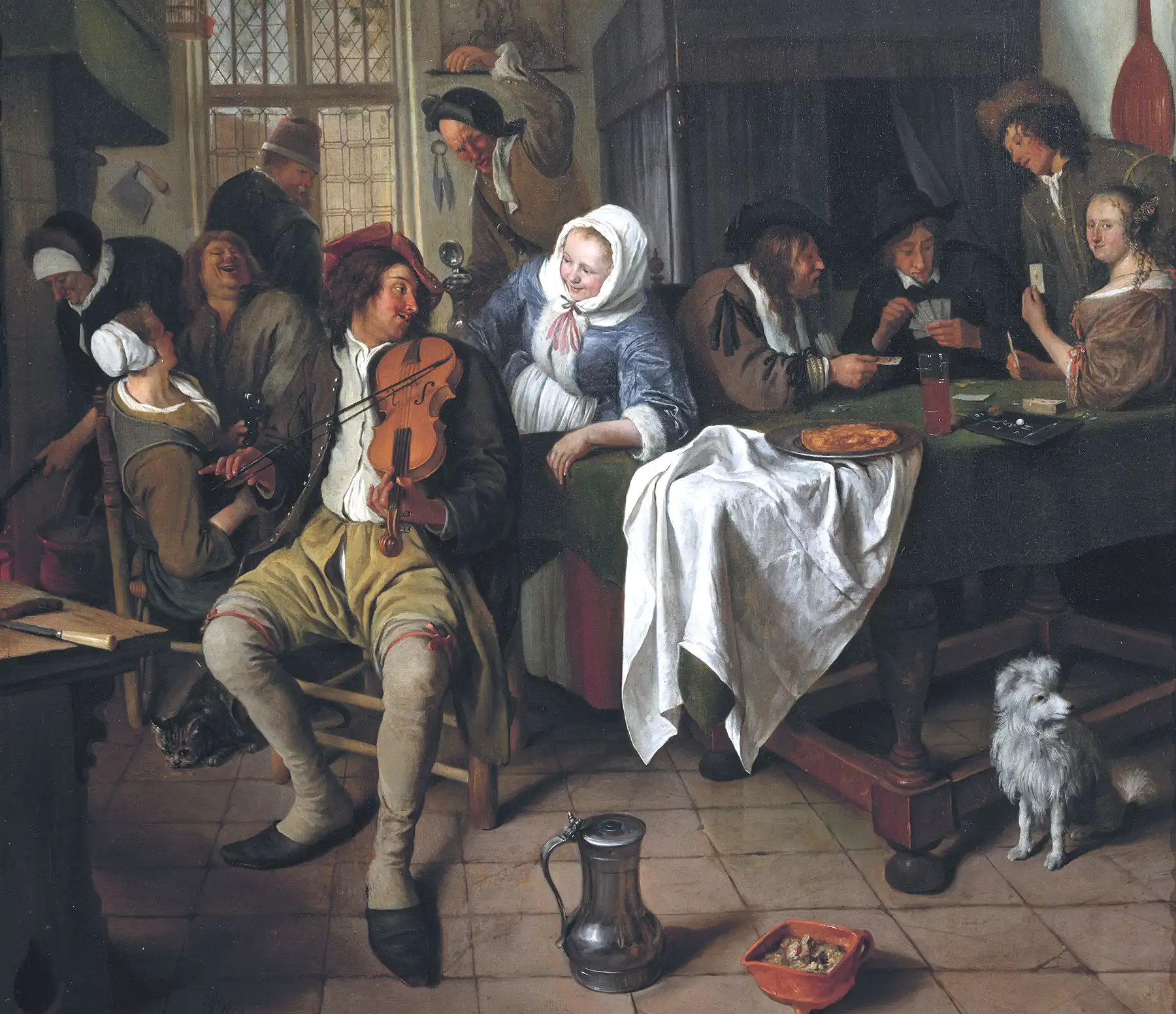Submitted by Peter and Barbara Snape
In 1975, Barbara was fortunate enough to meet a traditional singer named Emma Vickers. Emma was in her eighties and was living, as she had done all of her life, in the village of Burscough, situated on the Leeds to Liverpool canal in Lancashire, England. Emma was a warm and generous character, known locally as a “live wire of an old age pensioner,” and it was only later that the importance of the occasion was fully appreciated and realized.
One of the songs that Emma sang was a beautiful version of the song “Died for Love,” known all over the British Isles and America in many varied forms. Emma’s version was called “There Is a Tavern.” It was sung to the tune “McCafferty,” very similar to the “Lord Franklin” tune, widely used in traditional songs. There are lots of floating verses for this song, although the verse that starts “My heart is weary with all this grief” is not so widely known.
In the 1960s, Emma was visited by the folk song collector Fred Hamer, who later included some of her songs, including this one, in his Garners Gay song book.
In Burscough Wharf, once a busy canal trading center, there is a Blue Plaque installed on the canal side in honor of Emma Vickers, which recognizes her as a “community hero.”
Listen to Peter and Barbara singing “There Is a Tavern:”

Lyrics
There is a tavern in yonder town,
Where my false love goes and sits him down,
He pulls a strange girl upon his knee,
Oh don’t you think that’s a grief to me.
A grief, a grief and I’ll tell you why,
Because she has got more gold than I,
But gold will waste and her beauty will blast,
And then, poor girl, she’ll come like me at last.
He courted me when my apron tied low,
He followed me through all the frost and snow,
But now it ties underneath my chin,
He passes me by and says nothing.
There is a blackbird in yonder tree,
Some say it’s blind and it cannot see,
I wish it had been so by me,
Before I kept my love’s company.
Now all young girls be advised by me,
Never let a stranger take you on his knee,
He’ll court and kiss you, swear to be true,
And the very next moment he’ll bid you adieu.
My heart is weary with all this grief,
For my false love was worse than a thief,
A thief will rob you then run away,
But a false young man he’ll lead you astray.
Dig me a grave, long wide and deep,
Put marble stones at my head and feet,
Plant a red rose bush on the middle of me,
For I loved that lad, but he never loved me.
Peter and Barbara Snape live in the northwest of England and perform traditional song from that area. They research songs with varied and interesting themes and perform them with commitment, passion and enjoyment. Closely aligned to their research and singing interests, Cotton Town Chronicles is a presentation of songs about working life during the age when cotton and coal where king in Lancashire; A Song Seeker Found tells the story of Fred Hamer and his Garners Gay English Folk Song collection; Three Yards a Penny, Song, Song, Songs explores the Ballad/Broadsheet printer John Harkness of Preston, the songs he printed, and the street singers who sang them; and Anne Geddes Gilchrist, OBE, FSA, Folk Song Collector and Scholar is an overview of a remarkable Lancastrian woman who became a pivotal figure both within the folk-song collecting community of the early 20th century and in the publication of the Journal of the Folk Song Society.


 Thanks to the Massachusetts Cultural Council for their generous support.
Thanks to the Massachusetts Cultural Council for their generous support.